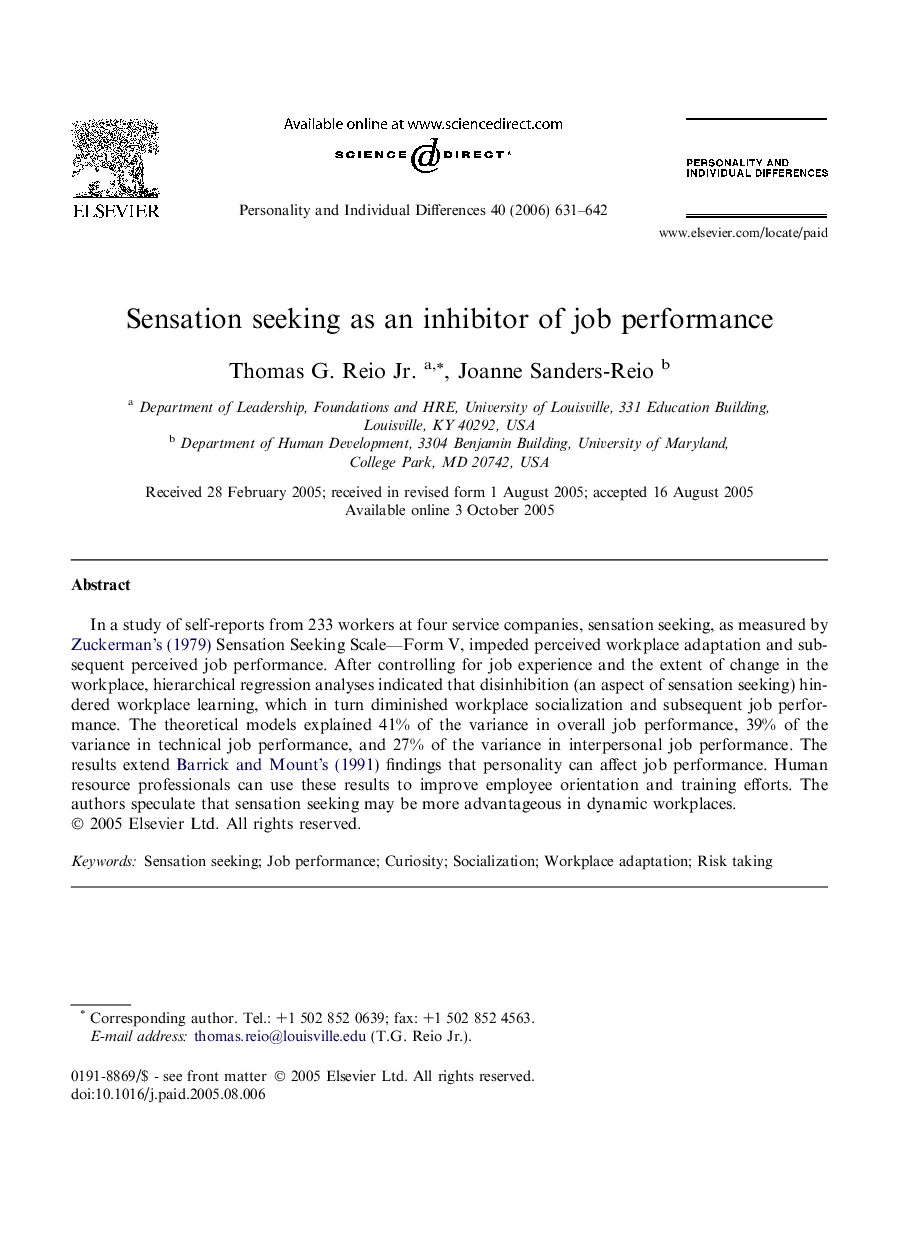| Article ID | Journal | Published Year | Pages | File Type |
|---|---|---|---|---|
| 893230 | Personality and Individual Differences | 2006 | 12 Pages |
In a study of self-reports from 233 workers at four service companies, sensation seeking, as measured by Zuckerman’s (1979) Sensation Seeking Scale—Form V, impeded perceived workplace adaptation and subsequent perceived job performance. After controlling for job experience and the extent of change in the workplace, hierarchical regression analyses indicated that disinhibition (an aspect of sensation seeking) hindered workplace learning, which in turn diminished workplace socialization and subsequent job performance. The theoretical models explained 41% of the variance in overall job performance, 39% of the variance in technical job performance, and 27% of the variance in interpersonal job performance. The results extend Barrick and Mount’s (1991) findings that personality can affect job performance. Human resource professionals can use these results to improve employee orientation and training efforts. The authors speculate that sensation seeking may be more advantageous in dynamic workplaces.
